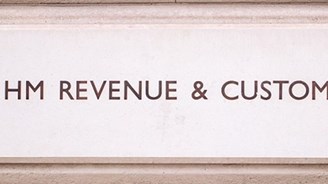How will the Chancellor deal with the squeeze at Spring Statement?

Income squeeze
The Resolution Foundation has warned that household incomes will fall by 4% in 2022/23, which equated to an average drop of £1,000 per household. This would be the sharpest annual income fall since the mid-1970s.
The Foundation also warns that inflation could peak at this Spring, while across 2022/23 it could be 7.6% – significantly above the 6.2% forecast published by the Bank of England recently.
Energy bills and benefits
The Resolution Foundation says the Chancellor should use the Spring Statement to remove green levies from energy bills and put them onto general taxation. It says this would take around £70 a year off household bills, which would offset some of the expected energy cap increase if it was enacted in October.
According to the Resolution Foundation, most working age benefits and the State Pension are due to rise by 3.1% in April at a time when inflation could well be over 8%. It says that over the course of the year, this will mean an effective cut in the value of benefits of over £10 billion.
To ease this cut in value, it says the Chancellor should address this in the Spring Statement by increasing benefits by a further five percentage points this April.
Pain at the pumps
The war in Ukraine is also causing steep rises in the cost of petrol and diesel. This is hitting all road users, whether they are hauliers, business motorists, commuters or family drivers.
Conservative MP Robert Halfon is now calling for the Chancellor to fuel duty or VAT on fuel to assist motorists. A cut would follow a freeze on fuel duty that has now lasted 12 years.
Rising overheads
Meanwhile, the Federation of Small Businesses (FSB) has urged Chancellor Rishi Sunak to use the upcoming Spring Statement to help small employers with rising overheads.
The business group has recommended an increase in the Employment Allowance to £5,000 to help free up funds for investment and expansion.
Research carried out by the FSB showed that the planned 1.25% increase in employer national insurance contributions (NICs) will add more than £3,000 to an annual tax bill for the average small and medium-sized enterprise (SME).
Delay the NIC increase
This followed the recent call by manufacturers’ organisation Make UK to delay the planned 1.25% rise in NICs altogether.
Make UK is one of the many voices that have called on the Chancellor to reverse the government’s planned increase in NICs, yet the Prime Minister and Chancellor have jointly ruled this out.
Judgement call
It is these decisions that underline why Mr Sunak faces a judgement call on government spending and borrowing at the Spring Statement, says the Institute for Fiscal Studies (IFS).
Higher inflation will wipe out at least a quarter of the real terms increases to public service spending announced back in October, it added.
The IFS says that in terms of household budgets, just to provide the degree of protection against higher prices he intended back in February, Mr Sunak could need to find more than £12 billion on top of the £9 billion already committed.
Keeping your clients informed
We will discover what the Chancellor will offer squeezed businesses and households on 23 March 2022. Keep your clients up to date with our detailed Spring Summary, available in a range of formats including printed copies, PDFs and flipbooks.



